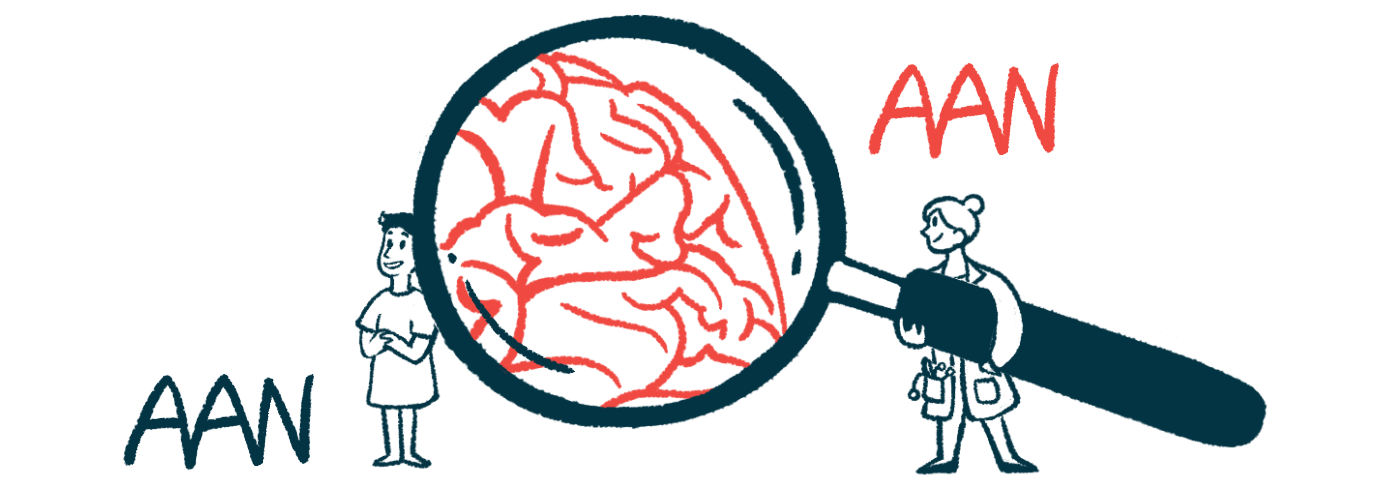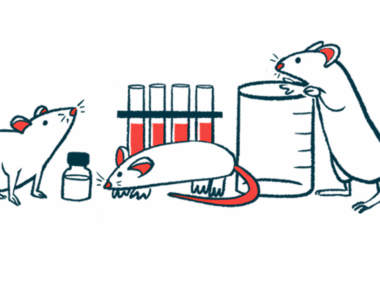AAN 2024: AskBio’s gene therapy seen to ease motor symptoms
No serious safety issues reported in 11 patients given AB-1005 in Phase 1 trial
Written by |

AB-1005, an experimental gene therapy administered directly into the brain, helped ease motor symptoms in patients with moderate Parkinson’s disease, whereas it appeared to stabilize disease progression for those with mild disease in a small Phase 1 clinical trial.
No serious safety issues were reported for the 11 enrolled participants.
Top-line findings from the study were announced earlier this year by the therapy’s developer AskBio (a subsidiary of Bayer). The results were presented in detail at the American Academy of Neurology (AAN) 2024 Annual Meeting, held April 13-18, in Denver, Colorado, and online.
Based on the findings, AskBio is planning a Phase 2 study (NCT06285643) to further test AB-1005 in Parkinson’s patients. The Phase 2 trial, dubbed REGENERATE PD, is expected to launch later this year and will enroll participants in the U.S., U.K., and European Union.
‘Early findings are encouraging’
“These early findings are encouraging and show AB-1005 to be well tolerated in this study in patients with mild to moderate Parkinson’s disease,” Krystof Bankiewicz, MD, PhD, scientific chair for Parkinson’s and multiple system atrophy at AskBio, said in a company press release. “Further, they highlight areas of potential future exploration in our upcoming Phase II REGENERATE PD trial, which will look more closely at the potential efficacy of AB-1005 in the treatment of Parkinson’s disease.”
In Parkinson’s, dopamine-making dopaminergic neurons sicken and die, driving disease progression. GDNF, which stands for “glial cell line-derived neurotrophic factor,” is a signaling molecule that helps promote the growth and survival of dopaminergic neurons. AB-1005, also known as AAV2-GDNF, is designed to deliver a copy of the gene encoding GDNF to brain cells, thereby increasing levels of this signaling molecule to promote dopaminergic neuron survival.
In the Phase 1 clinical trial (NCT04167540), 11 people with Parkinson’s disease were treated with AB-1005, administered directly through a surgical procedure into the putamen (a region of the brain that’s affected by Parkinson’s). Participants also continued receiving standard Parkinson’s treatments like levodopa.
Based on clinical characteristics at the time of treatment, the 11 patients were categorized into two groups: six had mild Parkinson’s, while the other five had moderate disease. All of the patients were followed for at least 18 months after treatment with AB-1005.
Amber Van Laar, MD, a vice president of clinical development at AskBio, discussed the results at the AAN meeting in a talk, titled “Phase 1b Safety and Preliminary Efficacy of Bilateral Intraputaminal Delivery of AAV2 GDNF (AB-1005) in Participants With Mild or Moderate Parkinson’s Disease.”
Non-serious side effects related to surgery, resolved within a few weeks
The main goal of the study was to evaluate safety, and results were positive. The most common side effects linked to AB-1005 were expected issues related to the surgical procedure to administer the virus, such as headache. These were all non-serious and resolved within a few weeks.
“We expected things like headache, you know, after having brain surgery,” Van Laar said.
There were also a handful of serious safety issues reported during the study, including one patient who had a bad fall and two who were diagnosed with cancer. None of these were considered related to AB-1005 treatment.
Preliminary efficacy data have also been promising. The trial hoped to show that AB-1005 would deliver its genetic payload to at least half of the cells in the putamen. Exceeding expectations, results showed the therapy covered nearly two-thirds of putamen cells on average.
The severity of patients’ symptoms was monitored using the Movement Disorder Society-Unified Parkinson’s Disease Rating Scale (MDS-UPDRS). Researchers especially looked at part two of the test, which assesses patients’ ability to function in day-to-day life, and part three, which assesses motor symptom severity.
In patients with mild Parkinson’s, scores on parts two and three were generally stable over 18 months following AB-1005 treatment. Van Daar stressed further follow-up is needed, but said that if stability can be maintained over the full five years of observation planned in the trial, it would be “quite remarkable.”
For patients who started off with moderate Parkinson’s, notable improvements were seen following AB-1005. Scores on part two of the test decreased by an average of 3.8 points, indicating an easier time managing daily activities. Scores on part three improved by more than 10 points on average when patients were assessed while on other Parkinson’s treatments, and by more than 20 points when patients were assessed off of other treatments.
Improvement in scores represent ‘large clinical effect’
Most Parkinson’s patients can feel the difference when MDS-UPDRS scores improve by at least three points, so these differences are “considered to represent a large clinical effect,” according to AskBio.
During the study, patients used diaries to record the amount of daily “good on” time when their symptoms were well-controlled without troublesome side effects like dyskinesia (uncontrolled movements, a common side effect of some Parkinson’s medications).
In the mild Parkinson’s group, average “good on” time decreased by a bit more than one hour per day. According to AskBio, this decrease in average scores was driven mainly by one specific patient, who was found to carry a genetic mutation that the company thinks might be affecting disease progression.
In the moderate group, who had less “good on” time before receiving AB-1005, “good on” time increased by more than two hours per day on average, driven largely by a decrease in daily “off” time where symptoms aren’t well-controlled between scheduled levodopa doses. The moderate group also had less need for levodopa following gene therapy; the average levodopa equivalent daily dose decreased by 258 mg.
Van Laar stressed that follow-up is needed, but said these results are so far promising for the experimental gene therapy.
Note: The Parkinson’s News Today team is providing coverage of the American Academy of Neurology (AAN) 2024 Annual Meeting April 13-18. Go here to see the latest stories from the conference.








